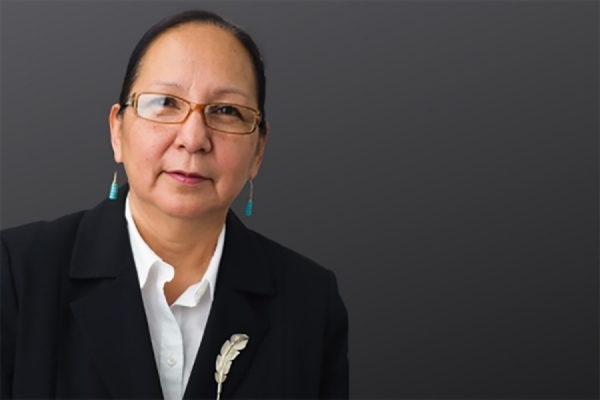 Law professor Valarie Waboose’s discussion series on her research into compensation for residential school survivors will continue Friday, Feb. 11.
Law professor Valarie Waboose’s discussion series on her research into compensation for residential school survivors will continue Friday, Feb. 11.
As part of an ongoing effort to continue conversations regarding Indigenous issues, the Paul Martin Law Library’s Truth and Reconciliation Reading Circle is currently reading law professor Valarie Waboose’s dissertation, Re-Living the Residential School Experience: An Anishinabe Kwe’s Examination of the Compensation Processes for Residential School Survivors.
Previous readings have covered the executive summary of the Truth and Reconciliation Commission of Canada: Calls to Action and Reclaiming Power and Place: The Final Report of the National Inquiry into Missing and Murdered Indigenous Women and Girls Calls for Justice Executive Report. The Truth and Reconciliation Reading Circle recognizes the impact and continued intergenerational trauma on Indigenous people because of the residential school system and would like to bring awareness and education to others.
In light of recent events, including the findings of mass graves, Dr. Waboose recently posed this intriguing question:
On Jan. 21, the Canadian Press reported that the federal government will turn over Residential School documents… the claims process for the Indian Residential School Settlement Agreement is now closed. So my question is this: what type of information is contained in those documents? What, if anything, was the government trying to hide?
The three-part event series continues the conversation with Waboose, director of the Legal Indigenous Orders Institute at Windsor Law, on Friday, Feb. 11, and Friday, March 25, from 2 to 4 p.m. Registration is free and open to the public.
In conjunction with the Truth and Reconciliation Reading Circle, the Paul Martin Law Library is collecting donations of non-perishable food items for the Campus Community Food Bank, and new mittens, gloves, hats, and scarves for the Downtown Mission’s Coldest Night of the Year which takes place on Feb. 26. Donations may be dropped off at the Law Library, located in the Leddy West building, Monday through Friday, from 9 a.m. to 4 p.m.
